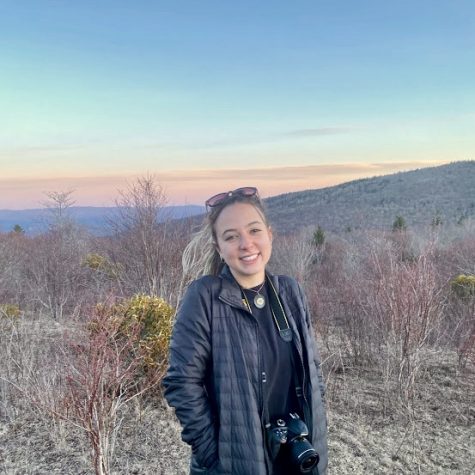Faculty Senate pushes university to adopt climate neutral practices by 2035
October 31, 2019
After a unanimous vote, Faculty Senate voted to pass a resolution urging the university to be climate neutral by 2035.
The resolution was written primarily by Brian Burke, an assistant professor in the Sustainable Development Department, while faculty senate chair Michael Behrent, and members Scott Marshall and Susan Doll assisted with the procedural and revision processes.
The resolution, passed Oct. 7, is a revised version of a tabled resolution from last year.
Doll, assistant sustainable technology professor, and Marshall said they both voted to table the first resolution.
“When the resolution was introduced, the topic was important and widely supported,” Doll said. “It was a resolution that we all wanted to support, but it didn’t have enough focused language, so we rewrote it.”
She said the overall objective of getting the university to commit to climate neutrality remained the same, but the language concerning why and how that would take place was altered.
Doll said an important first step in the resolution is creating a committee that would develop tangible steps toward climate neutrality by making specific recommendations to the university. The committee would also create a timeline for completing goals.
Doll said they wanted to create something concrete that wasn’t “a bunch of words.” Forming the committee and hiring an energy manager were important ways they could monitor progress.
Burke, the creator of the resolution, said rehiring an energy manager is a no-brainer.
“When we had an energy manager and a fully-staffed energy efficiency office, the work they did reduced greenhouse gas emissions rapidly and paid for itself in a couple years,” Burke said. “It’s financially irresponsible as well as being climate irresponsible.”
While important, Burke said most greenhouse gas emissions come from electricity purchased, energy generated, transportation, the university’s food footprint and the carbon footprint from supplies purchased.
To combat emissions from each sector, Burke said the university should shift entirely to non-polluting sources of electricity and self-generated energy, and ensure that other purchases are fully renewable or that the university is offsetting those purchases with carbon sequestration.
Carbon sequestration is the process of capturing and storing carbon dioxide, according to the U.S. Geological Survey website.
There are two main carbon sequestration methods: measures that increase Earth’s capacity to absorb carbon, such as tree planting and habitat restoration, and home energy efficiency upgrades for low-income homes.
Burke said home energy efficiency upgrades are socio-economically beneficial but is difficult to measure exact data from.
“From an institutional perspective, we’ve built this brand around sustainability, and if we don’t walk the talk, we will eventually get called out as hypocrites,” Burke said. “It is something we care about, and so we want to live our values.”












